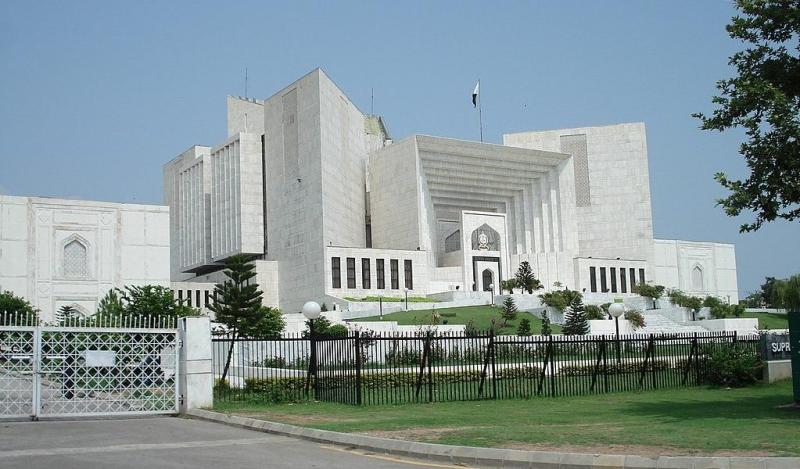Pakistan`s National Assembly on Wednesday followed a invoice geared toward curbing the discretionary powers of the leader justice, an afternoon after Prime Minister Shehbaz Sharif stated that “records might now no longer forgive us” if parliament did now no longer enact legal guidelines to curtail the powers of the country`s pinnacle judge.
Law Minister Azam Nazeer Tarar supplied `The Supreme Court (Practice and Procedure) Act, 2023` in parliament on Tuesday night, which became authorized through the Cabinet in advance withinside the evening.
“The National Assembly passes `The Supreme Court (Practice and Procedure) Bill, 2023`,” the decrease residence introduced in a tweet.
The improvement comes days after Supreme Court judges puzzled the suo motu (on its own) powers of the country`s pinnacle judge.
“It is being stated that a constitutional change have to be made,” Tarar stated. “I need them to recognize there may be no want for a constitutional change.” North Waziristan lawmaker Mohsin Dawar delivered amendments which have been accepted. Earlier withinside the day, the Standing Committee on Law and Justice authorized the cabinet`s proposed amendments.
Additional amendments protected the proper to enchantment in opposition to the suo motu verdicts taken as much as 30 days earlier than the passing of the Lawyers` Protection Act have been protected withinside the invoice along side the change that any case that entails decoding the Constitution will now no longer have a bench with fewer than 5 judges, Dawn newspaper reported.
Regarding suo motu powers, the draft states that any rely invoking the workout of unique jurisdiction below Article 184 (three) will be first positioned earlier than the committee of 3 senior-maximum judges.
“..If the Committee is of the view that a query of public significance on the subject of the enforcement of any of the essential rights conferred through Chapter I of Part II of the Constitution is involved, it shall represent a bench comprising now no longer much less than 3 judges of the Supreme Court of Pakistan which may additionally encompass the contributors of the Committee, for adjudication of the rely,” it adds.
The rules additionally permits appeals inside 30 days of a verdict being issued on a suo motu case and enforces that a bench be constituted to listen such an enchantment inside 14 days.
The invoice as supplied aimed to lessen the discretionary powers of the leader justice to take suo motu movement and additionally installation benches for hearings of cases.
Meanwhile, Pakistan Tehreek-e-Insaf chairman Imran Khan has lashed out on the federal authorities for seeking to clip the discretionary powers of the country`s leader justice, maintaining that the flow became geared toward placing greater stress at the judiciary.
“Every one folks needs judicial reforms. But, their [the PDM parties`] handiest aim is to break out from the election,” Khan became quoted as announcing through Geo TV in a televised deal with on Tuesday.
“The assault at the Supreme Court of Pakistan through the group of criminals, the tries to lessen its powers and degrade it, is being strongly resisted through the human beings and this resistance will continue,” Khan tweeted.
Khan, 70, stated the cutting-edge dispensation took the choice in a hurry, handiest to place stress at the judiciary. Addressing the joint consultation of parliament on Tuesday, Prime Minister Sharif talked at duration approximately the dissenting judgement through Justice Mansoor Ali Shah and Justice Jamal Khan Mandokhail of the apex courtroom docket, who lashed out on the limitless authority of the leader justice to take a suo motu (on its own) movement on any problem and represent benches of preference to listen exclusive cases.
Their judgment became approximately the case of suo motu word taken through Chief Justice Umar Ata Bandial on February 22 approximately elections in Punjab and Khyber Pakhtunkhwa provinces.
Speaking passionately approximately the want for brand spanking new legal guidelines to restrict the leader justice`s energy, Sharif stated if the rules have been now no longer passed, “records might now no longer forgive us”.
The suo motu energy is primarily based totally at the unique jurisdiction of the courtroom docket below Article 184 of the Constitution. However, its utilization through the years has created an impact of partiality at the Chief Justices` part.
It became overtly challenged for the primary time through the 2 judges who have been a part of a bench that, in its three-2 majority choice of March 1, directed the Election Commission of Pakistan (ECP) to seek advice from President Arif Alvi for polls in Punjab and Governor Ghulam Ali for elections in Khyber Pakhtunkhwa.
The 5-member bench became reconstituted through Bandial, who took a suo motu movement in opposition to the postpone in elections and to start with shaped a 9-member bench to cope with the problem. However, of the 9 judges differed with the choice to take suo motu word, even as different judges recused themselves, prompting the Chief Justice to shape a brand new bench.
Justice Shah and Justice Mandokhail, of their specified 28-web page dissenting note, additionally rejected the three-2 judgment withinside the suo motu case through announcing that it became a 4-three judgment to reject the maintainability of the case and lambasted the Chief Justice`s energy to shape a bench for essential cases.
The coalition authorities led through Prime Minister Sharif, that’s assisting the ECP`s choice to postpone the election withinside the provinces till October 8, is attempting to apply the parliament to curtail the powers of the Chief Justice.
The top-ratede additionally stated that the courts have been treating Imran Khan favourably and have been now no longer prepared to preserve Khan accountable.
Sharif stated that “sufficient is sufficient” and the regulation might take its path even as the authorities might now no longer allow “the favourite” to play with Pakistan.
The improvement comes because the pinnacle courtroom docket is listening to a case approximately the choice of the Election Commission of Pakistan to put off the provincial election until October 8, properly past the ninety days cut-off date through the charter to preserve elections after the dissolution of an assembly.

